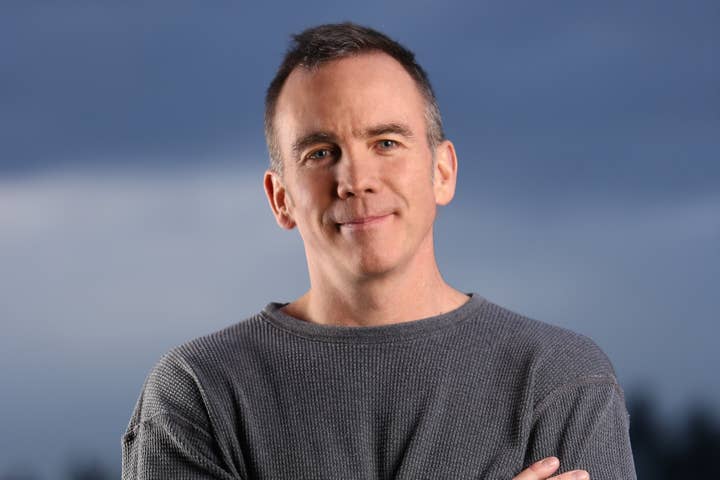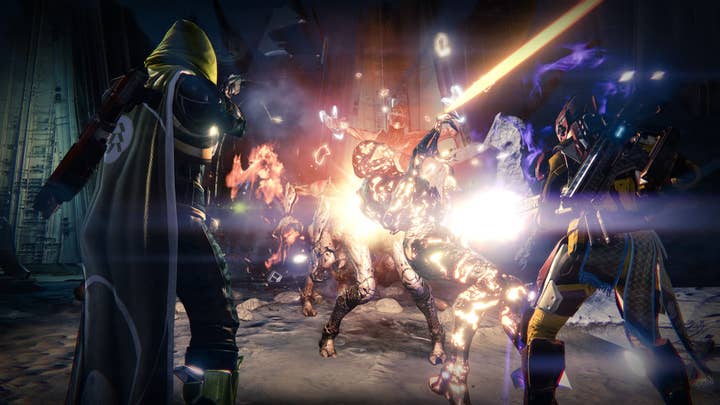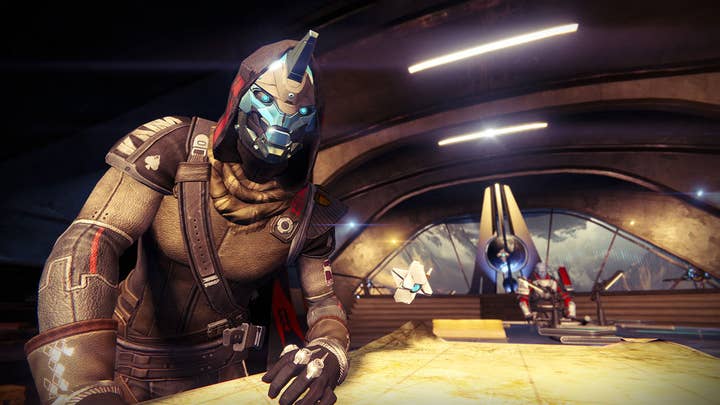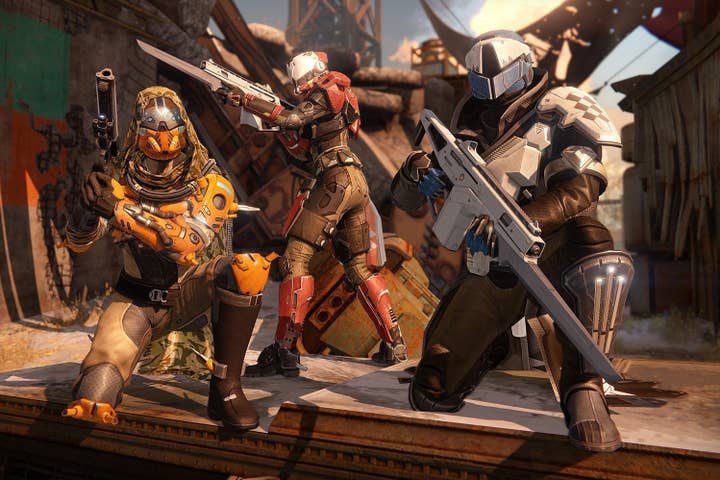Bungie: "The launch of Destiny was the starting line"
COO Pete Parsons and the space shooter setting the standard for life beyond single-player
Ways to know if you're a Destiny addict: Friday is now Xur Day, you're clearer on the number of Ascendant Shards you have than the state of your actual bank account, your loved ones have to fit around your Vault Of Glass raiding schedule. This is not your average shooter.
"The launch of Destiny was the starting line," Pete Parsons, COO of Bungie, tells GamesIndustry.biz
For some, Bungie's Destiny ended when they finished the single player, but most will tell you that's where the real game begins. Players are happily grinding away, upgrading weapons, getting their characters to level 30, finding exotic loot, going on massive raids together. It's been said before but it's more MMO than shooter for these players, and for Bungie's development team too.

"We don't get a break, and that's also part of the bargain. We knew what we signed up for and so at no time in the studio are there less than a few dozen people managing the world itself," says Parsons, who is still playing the game himself.
"It's a whole new, really interesting aspect of running the business itself: making sure that people are getting right vacations, making sure that you've got teams that are focused on a specific topic. Our Destiny operations center team works around the clock in shifts. If you walk in to that room it looks like a NASA control room."
"At no time in the studio are there less than a few dozen people managing the world"
He describes giant screens with all the necessary information, how many players are online, where are they? What's the schedule for daily activities? What's happening with updates over the next three months? What's fascinating about Destiny is that as part of this ongoing support Bungie has decided to drop the mysterious and secretive act so common to the AAA development process and interact often and productively with the Destiny community. Parsons says their feedback is absolutely key to the game's continued success.
"Certainly, the highest priority is fixing things that are not working, making things that are working well work even better, like bounty slots, and then absolutely responding to things that people want," he explains.
"There are other elements where we continue to add to the game, specifically listen to the community and do entirely new work simply based on what the community wants. An example of that would be more slots for bounties or voice chat in matchmaking. Those are specific things that came directly out of the community asking for them. The new trick Sparrow, the Tumbler, is another one where the community wasn't asking for that but we observed how many people are having fun and taking video of doing tricks on the Sparrow."

That feedback loop goes from the gamers to the community manager to the very top of Bungie Towers.
"So from our most senior and our most talented people across the board we're sort of involved on multiple channels in terms of communicating directly with the community," says Parsons.
"The patch notes themselves are written by the core development team including Jason Jones, who is the the project lead and a founder of Bungie. He is personally taking great pains on making sure that things like the patch notes are really well understood, they're really clear for people, they understand the types of choices that we're making. Even if they're not always perceived as being the best choice."
"It's very difficult to sit down for nine hours, 11 hours, and write up a review of a game like Destiny"
Indeed, sometimes the fixes are popular, like tweaking the Cryptarch system (where players can decode mysterious engrams for loot), or not, like shutting down the infamous loot cave where players could farm resources.
"So the exciting part was it was this great moment when the community came together and they were doing something social together. That's the exciting part about it. The challenge is that this is an investment game, if you can overpower that investment game it's a real problem."
That feeling of investment seems to be part of the secret to this ongoing relationship players have developed with the game. Destiny hands out special weapons and armour... but not too quickly. Reward comes with hard work and a lot of luck, making it all the sweeter.
Perhaps that focus on a hard work ethic is one of the reasons the Destiny community is so gosh darn nice, unusually so. Most shooters aren't exactly friendly places for inexperienced players, in Destiny there's a culture of "sherpa-ing" where hardcore veterans will lead newbies through the dastardly Vault Of Glass raid.

"One of the things we've always said from the beginning was that anything that is fun to do is more fun to do with or in front of your friends and that we would always try to slope the floor to bringing people together, we put a bunch of systems in place - everything from the more obvious public events or co-operative matchmaking and maybe even to the less obvious where if you fire off a super, orbs come out and that literally brings people together."
Parsons even found himself being guided through the Vault Of Glass by an experienced player.
"I've been through before - but went through with a guy who was effectively an experienced guide. Just hearing the conversation he had and how he was managing the group was absolutely fascinating. 'OK everybody hold here, if you look over to your left...' It was kind of fun to just kind of go along for the ride and hear the conversation that was happening."
Of course, you wouldn't know any of this if you haven't played Destiny, even if you read the reviews. I asked Parsons about how you can ensure games like this are reviewed properly, and he's diplomatic in his answer.
"It is true there are a lot of those people who were sceptical that are still playing it now. I think it's very difficult to - as we see games like Destiny coming out - it's very difficult to sit down for nine hours, 11 hours, and write up a review of a game like Destiny right?
"We were very thoughtful about the kinds of technology that we wanted to create to make sure that we were future-proofed"
"If I were a reviewer it seems like a nearly impossible challenge to do because there's just no way you can experience... you barely experience sort of the campaign side of it and just PvP and no way you can get into all of the end game activities, and so it really asks a great question which is 'how are games like Destiny going to be reviewed in the future?'"
It's something Parson probably needs to ponder because Activision's recent financial reports revealed that Destiny 2 is already in production, no surprise considering the game has ten year roadmap.
"Part of being able to set off on a ten year journey was planning for it. We don't know exactly how over these years the story will play out or the kinds of activities we'll have but from the very beginning we were very thoughtful about the kinds of technology that we wanted to create to make sure that we were future-proofed and to make sure that players could have this ongoing journey," he says.
"We also left a lot open because once players got the game in their hands we learned a lot. In a way that we expected, we knew that we were going to have to change our plans from the moment the game went live ."
The first Destiny DLC pack, The Dark Below, is released on December 9.









